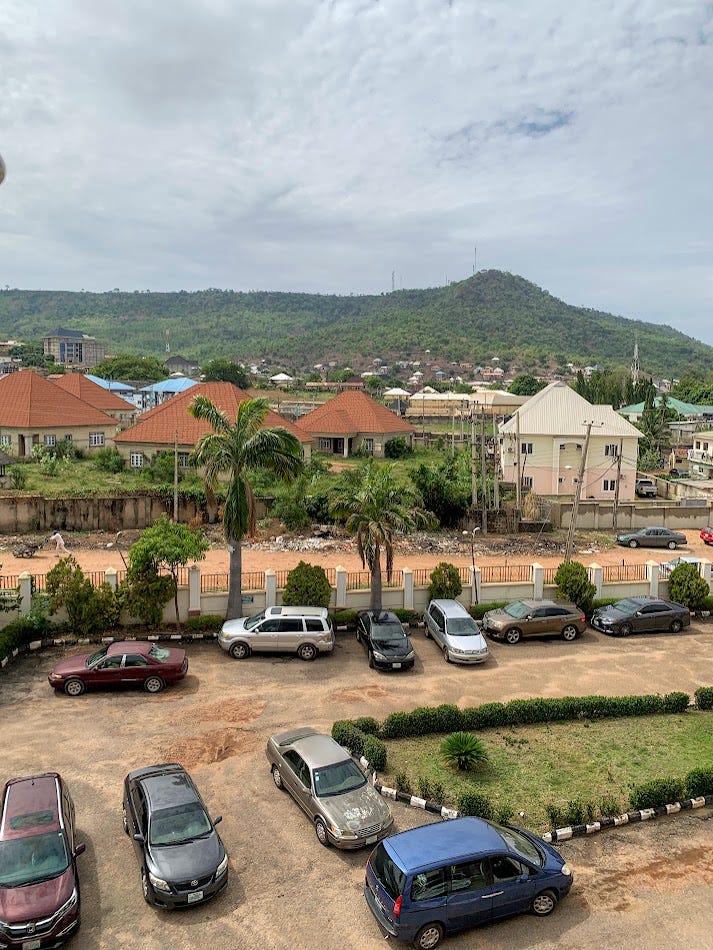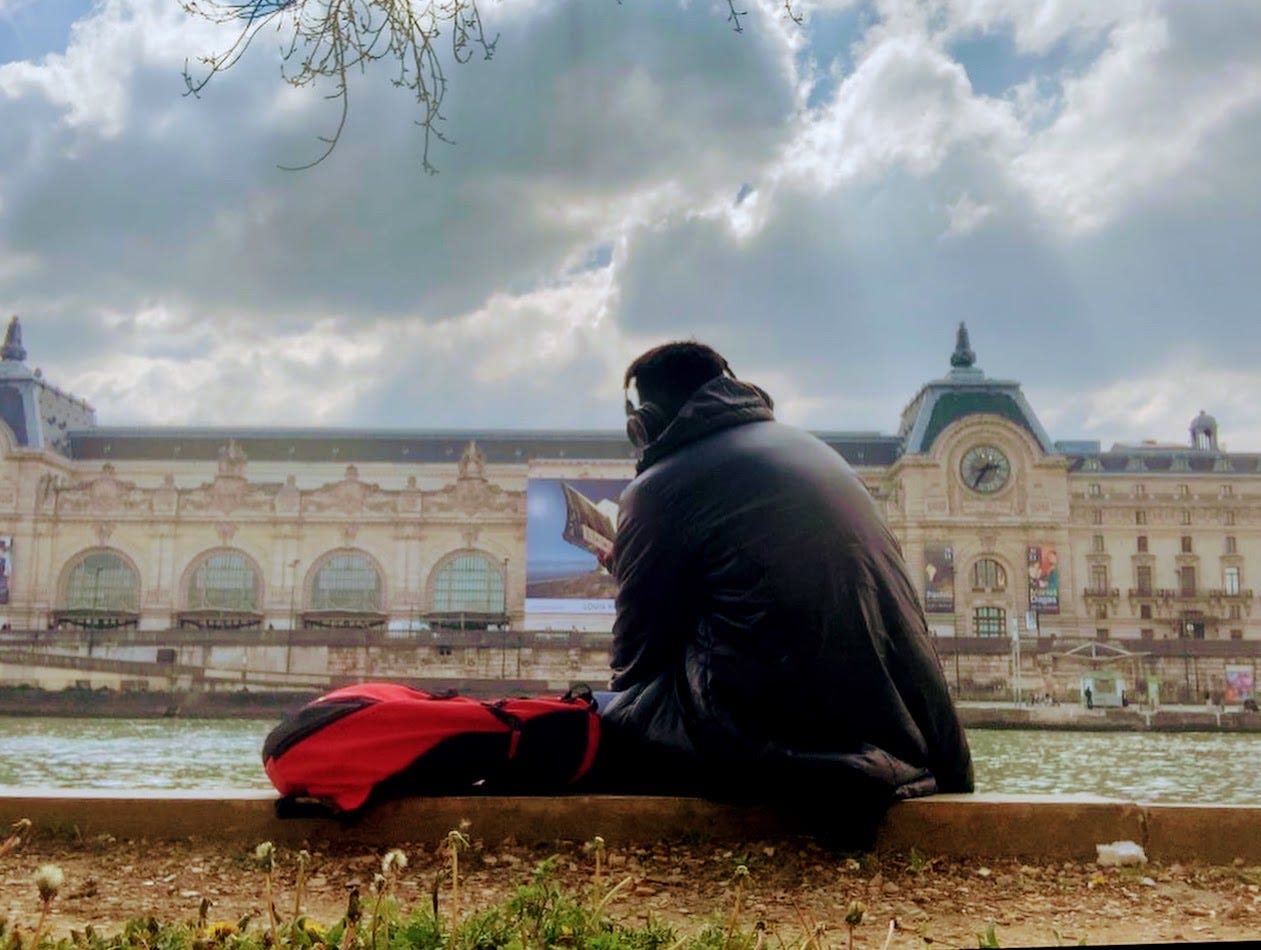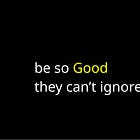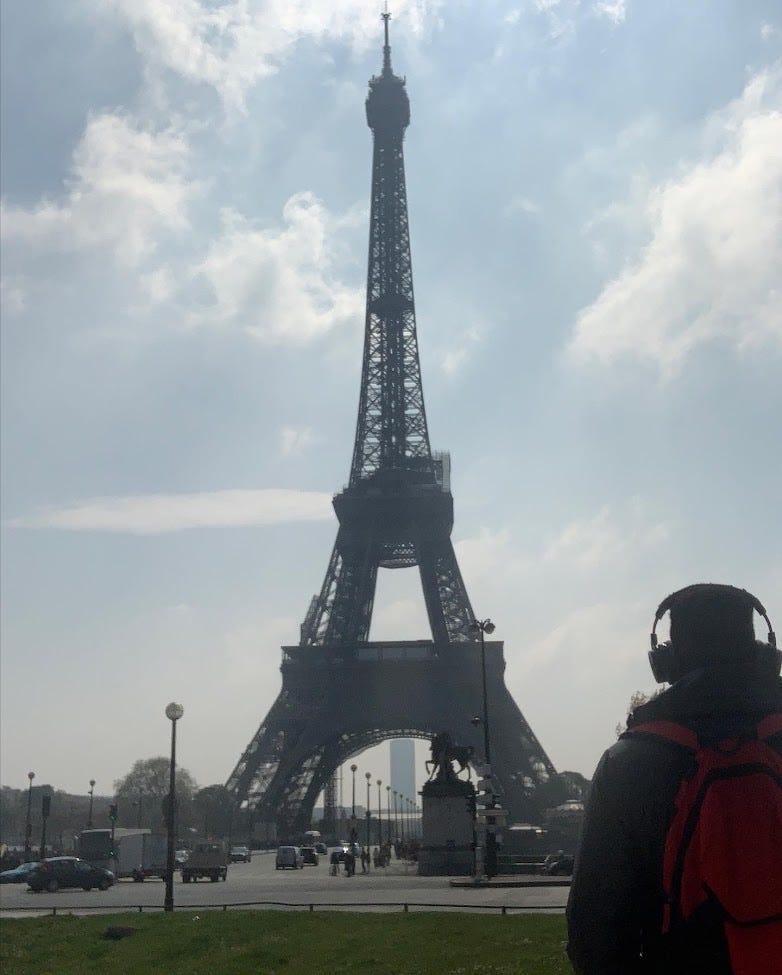My left knee is killing me! The pain is unrelenting.
Road trips take a toll - that much, I have always known. This is my first real road trip since 2019. Before then, I took them all the time, long drives from Lagos to Auchi, usually with my father at the wheel. The last time I was on the road for this long was 2017, with my entire family in our blue Volkswagen Sharon; early 2000s RnB music on the radio; my father and I in front with keen eyes on the road; my mum and sisters, at the back, sleeping in unplanned shifts.
I am writing you this section of the newsletter from Lokoja. That is a first. The conversation I had with an activist about his work in communities around Kogi state hints at the possibility of it not being the last. I am writing this section on my phone, another first. Since 2019, I have slowly become afraid of the road. Like many people privileged enough to travel by air or sheltered enough not to travel, I believe that road trips in Nigeria are almost certain death wishes. The roads are not good and they are littered with danger. I delayed making this trip for a few weeks because of this fear. When I did decide to take the plunge, I figured I rather not also lose my laptop if something bad happened, so here I am writing on my phone. A first.
Leaving my house at 5 am did not help me achieve any of the things I wanted to achieve.
I wanted to sit shotgun and limit the discomfort my legs would experience. I sat behind the shotgun seat and like you already know, my left knee is in shambles.
I wanted to take the first car out of Lagos and be on my merry way early. I did take the first car but a combination of ‘other passengers strolling in for the same trip two hours after me’ and ‘treacherous Lagos traffic’ means I was not on the express road till 10 am.
Consequently, I wasn’t in Ibadan till past 11. The real journey did not start till noon and I didn’t get to Lokoja till 8 pm.
My fear of dying during this trip disappeared almost completely once we hit the open roads. I am familiar with road trips, I enjoyed them from a very young age. I never slept, not even when I was a little boy. I liked paying attention to the passing scenery and the speedometer. I lived for the overtakes and cautious manoeuvres. The express road is a kind of home for me.
As I grew older and learnt that the world was a scary place, naturally I became more nervous about travelling. I participated more actively in the pre-journey prayers. I held my breath close to heavy-duty trucks. And I trusted my driver deeply. With my father, it was easy. To date, my father is the man I model my driving after. I want passengers, whoever I am driving, to feel as comfortable as I do when my dad is driving.
I remember this one time, more than 12 years ago, when my father drove us to Port Harcourt and we did not arrive at our destination till 9 pm. During those last couple of hours, as we drove in the dark, I could barely make out what was ahead. I could not tell you the way to get to our destination, not on the express road, not when we got to Rivers State. But my father could, I knew he could, I trusted him. There were near misses, there always are. I remember this one overtake we did on a single carriage road where an oncoming car with no working headlights almost ran into us. We did not see it till the very last minute when my dad made a last-ditch effort to swerve. Close call. My heartbeat did not skip even for a second. My father was driving.
I later learnt that my dad can barely see at night. He strongly dislikes driving in the dark. He does it when the need arises but he never looks forward to it. Like many other people, the headlights of oncoming vehicles blind him. When he can see, he can see only a few metres in front of him. An episode of the hit sitcom, How I met your mother, touched on this very thing.
Trusting your father to see the road at night when you, his son, cannot.
Marshal was dealing with the grief of losing his dad in this episode. This loss made him question his preparedness as a man. How could he see anything in the dark without his father?
As night met me on the way to Lokoja, I thought about trust. I thought about my trust in this driver and I thought about his trust, in the road.
I have learnt since becoming an adult, since watching how I met your mother, since learning to drive, none of us can really see the road at night. No one can. All of us are good at the same thing, we are good at trusting.
Marshal’s dad appeared with this confession later on in that episode. He could not see the road any better than Marshall ever could. Only a few metres at a time. But he trusted that he would continue to see the road a few meters at a time till he got home.
My dad did the same thing when I was younger. I do the same thing now. My driver to Lokoja does the same thing. In fact, he probably did it the entire ride. I remember thinking during lonely stretches of roads, ‘I wonder if robbers are just around the corner’. Then I thought about how my driver made this trip 4 times a week, he must think about it too. It is a reality that the roads are not safe but it is also a reality that thousands of Nigerians need to travel by road every day. They have that fear but they also have trust. My driver could not say for sure that the road was safe around the corner, but the road was safe now so he drove and he trusted that it would continue to be safe.
There is perhaps no better metaphor for the saying:
“Trust the journey/process”
A timely one for me to be reminded of as I settle into what is now one month since I recently quit my job. Parts of me want to panic but parts of me, the parts that are winning, are trusting that I am walking a path that will lead me somewhere good. Even if I cannot see where that is.
This is how I want to start today’s newsletter.
Trust the road, even when you can’t see.
Thank you for clicking.
Now, the intro.
Incase you are new here: My name is Mo Isu. I am an audio producer based in Lagos, Nigeria. I am currently attempting to build a career in audio journalism. I have taught myself most things I know so far. You are reading issue 24 of my newsletter detailing this segment of my journey. Read the about page for more
Two lessons from a recent trip
I want to start by saying thank you to
who left a comment on a recent Ig post I made asking about the next issue of the newsletter. It's flattering to know that people look forward to these little slices of life I write about. In response, I told Azeez I had started several drafts. Today's letter will feature two of the ideas I was ruminating over last month when he messaged me.I was recently in France, I stood in front of the Eiffel Tower and everything. This is not my first time in Paris and this is not my first time coming away with lessons. I wrote about my biggest lesson from my first visit in this medium post about art. Here, I will tell you two lessons from my latest visit.
1. Security
The first lesson, about financial security, was perhaps not so much a lesson and more a heavy-handed reminder. To explain it, I will foreshadow my lesson on luck. I did not pay for my trip to France, I have travelled out of the country three times and haven’t paid for even one of those trips. If we include my trips around Nigeria, the story is very similar. I have been lucky enough to get the opportunity to travel without having the personal means to sponsor my trips. If it were up to me, I would not be a well-travelled man. Thank God it is not up to me.
There were different points during this trip where I wished I had the means to sponsor myself. I realised at different points during this trip that having money actually provides me with a lot of security. Being in France, knowing my bank account balance did not support that lifestyle made me feel so open, so unsafe, so vulnerable.
There was a moment last year when I had more money in my account than I had had since my father first gave me my savings. The only thing I could think of that entire period was how my money was going to finish. It was a looming fear.
‘your money will finish.’
It was the first time I wasn’t living from paycheck to paycheck and all my brain could think of was how foreign it felt to feel secure knowing you weren’t two days away from going broke. Then I rented my apartment and went back to the insecure lifestyle.
I always talk to my friends about how I don’t care about money. I don’t want to be rich. When people tell me about their own dreams of wealth, it makes me uncomfortable. I don’t know why but wealth is not an ambition I have ever had. I want to be comfortable and to be able to afford simple things, like food, art and travel. But I don’t think of these as luxuries. And I have never cared for luxury.
I have always prioritised doing things I enjoy over doing things that would make me money. Reading a book when I should be working etc.
Even in school, I would have all this schoolwork to do and instead, I would go and write a story. In some ways, it almost feels like all my life, I have been running away from money. I left tech just as it was about to kick off for me and instead did something more comfortable, with fewer stakes and less payout.
I have made a number of silly choices in the name of doing what I love. These choices would not make any of my mentors proud.
I remember an essay Casey Neistat wrote some years ago where he addressed a trend of emails he had been getting. One of the things Casey is most known for is a video he did for Nike where he took their budget and travelled around the world with it.
The resulting video is a storytelling masterpiece. And it looks like a lot of fun. He travelled to 9 countries in 10 days. Many of the young people in Casey’s inbox were asking him how they too could get brands to pay them to travel the world.
Casey has spent over a decade doing all sorts of jobs and honing his craft to earn the right to make this video. He felt slightly insulted that young people would think they could get that through some quick email tips.
Casey writes first:
“I have always made a living to make movies, never the other way around. When I first started. I washed dishes in a seafood restaurant to support my filmmaking.”
Then he says:
We didn’t have a green light, we just did it without sharing the specifics with Nike. It was a big risk. A bigger risk when Max and I returned from our trip with 40 hours of footage and no clear idea what to do with it. This was a scary time. Nike took a chance in hiring me and if I dropped the ball with this video I would have jeopardized my relationship with a very important company; the repercussions of failure would’ve have gone way beyond Nike - I would have had a tough time finding any paying work.
And Finally, he says
“No one is going to pay for your vacation, no one cares, no one gives a shit and they never will. If you want something, anything, do the work and earn it.”
In summary, you don’t simply land at doing fun creative work for money. You don’t just get to a place where you are doing only what you are passionate about with brands lining up to pay you. You earn that right, you grind.
Just as I was coming off these thoughts about the security that having money brings me and how I should probably tweak my approach to career success, Ope published the following letter.
It was a week filled with signs and all the signs were telling me I needed to stop kidding myself. Money is important. It is important to the world and it is, more than I care to admit, important to me. I live a very insecure life. Even now, as I write this to you, without the security of a salary, I am leading a very anxious existence. It is the only kind of existence I have ever known. I don’t think I am satisfied with that anymore.
I think I will like to wake up and not be scared. I would like the certainty of knowing I can handle the day. I can handle myself. And if something came up, I had the money to fix it. I don’t want to continue to live in fear of getting broke. I want to live some other kind of life.
A more secure one.
I don’t know yet what it looks like. And my road to selling out will not be quick or immediate. I will still be chasing creative projects. But I have decided it’s time to work with capitalism in mind. I will need to dust off some old skills, and likely practise new ones. And I will need to, for just some time, do work that will sponsor my creative passions.
2. Utilizing Luck
Two issues ago, I wrote to you about luck.
It’s a recurring theme in my life and in a lot of what I consume.
In the podcast, how I built this, Guy Raz always ends by asking his guests the same question.
How much of your success do you think is luck, and how much is pure hard work and grit?
The answers are always quite fascinating but a lot of the most successful people in the world point to luck as being a great contributor to their successes.
Depending on how you look at it, you might prefer the word ‘grace’.
In a recent video, Van Neistat, another youtube creator, straight up says that “Success is 1% idea, 49 % hard work and 50 % luck”
To a very large extent, I am in the same mental camp as these people. Sometimes I describe some of my luck as a privilege but it really can be anything. Good timing, good friends, something good.
It’s just a way of saying that for a lot of us, almost all of us, to a certain extent, success finds us in ways that we do not very directly orchestrate. This does not mean we are passive players in the stories of our success. It does not mean we are victims of our luck.
Knowing that luck is a big part of your success doesn’t mean you then get an excuse for why the success does not come - that you have bad luck.
The thing that hit me on this trip, and I think it hit me while I was standing at the Eiffel Tower, was that I needed to orchestrate my own luck.
I needed to create more opportunities to be lucky.
This was a realisation that was inevitable to have during this trip. Days before, I had been writing an essay for Instagram about how lucky I am to travel. During the early days of my trip, I kept having this conversation with the friend that was sponsoring my trip about how I might not deserve to be there. It was a hard conversation to have because she was making me confront the ways I hadn’t worked hard enough for the opportunity I got. She had basically forced me to be lucky and I realised that wasn’t good enough.
I realised it along with other realisations. There are a number of lucky moments I have experienced in the past two years that have actually come from my reluctant participation in creating the opportunities to get lucky.
This is not good enough.
Luck is not a thing that happens to us. It is a thing we utilize, along with hard work and preparedness.
What does it look like to utilize your luck?
I cannot tell you right now. I will think about it and perhaps write a better guide in the future. But for now, when I think of luck. I think of situations where I said yes to things that did not immediately seem grandiose but down the line led to a series of happy tidings.
One such moment was when I was 17 and gave my phone number to someone who was interested (very weirdly) in the fact that I said I was a writer. I still collaborate with him to date.
Another moment would be volunteering with my friend at his place of IT placement in my penultimate year at University. That little bit of luck led to my first job, two trips to France, one to the Ivory Coast, two authorship contributions and a host of other things.
Thank you for reading.
A Note on Support
First of all, we just crossed 3000 subscribers which is still just an unbelievable number of people to have access to. I am so grateful to every one of you who has subscribed and read my work. I hope you stay and read more.
I want to use this support section a little differently today and say that doing creative work like this, can be pretty hard, pretty daunting. But there is a reason I do this - I write these letters. I want to say things that have meaning and create impact.
Receiving support from the people I reach is the only way I can be sure I am creating that impact and providing that meaning.
The great thing about support is that it can be many things.
Simply reading this - That’s already a huge form of support. I see the number of reads each post gets and those numbers mean something to me.
Liking this post on Substack. It’s another great form of support. It lets me know that not only did you read this but it meant something significant to you. It’s a token way of letting me know that you see me. Thank you to everyone that likes my post.
Leaving a comment. At this point, we are entering a different level of support. Comments let me know that not only did this mean something to you, but it also tells me exactly what it means to you. As a bonus, it gives me the opportunity to interact with you.
Writing back. People do this from time to time and I always write back. Getting your letters is always such a delightful experience and I hope you will continue to write to me.
Sharing. And you don’t even have to share wildly. Just sending this letter to one person is an incredible token of support. I believe that the best thing I can do for art I love is bring more attention to it and I appreciate it when the same is extended to me.
Sponsoring a post. I am always overwhelmed by this kind of support. I already spoke at length about the financial worries of doing creative work. Sponsoring helps ease some of the burden. I have received different kinds of sponsorships from my people since the beginning my career and I will always be struck by that level of generosity. By doing as little as buying me a coffee, you are making it easier for me to continue to do this work and I am grateful to you for that.
Thank you for reading and see you soon.







So many quotable quotes this week. I'm spoiled for choice.
Hi Mo,
I really enjoyed reading this (It did more for me than the class I'm currently in). Anyway, I just wanted to state that I loved the concepts you explored and more so, how you explored them. Some are things I think about on and off , the luck thing especially. You put these thoughts to words and that made for a fantastic read.
Thank you.
Travelling with family on long-distance trips has always been a revealing experience about my parents. Literally, when you are confined in a car, for hours at a time, there's nothing to do but place your trust in their hands. I like how you point out thaht that our trust may be a blindspot to how hour parents really feel, and it really, it does take hindsight to understand those anxieties.